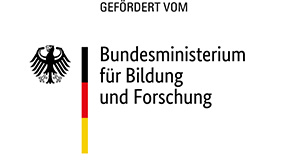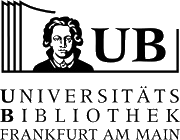Professionalitätsentwicklung in der allgemeinen, öffentlichen Erwachsenenbildung für Inklusion – ein Systematisierungsversuch der Fortbildungspraxis an Volkshochschulen
Professional development in public adult education for inclusion – a systematization attempt at further education practice at adult education centres
DOI:
https://doi.org/10.21248/qfi.49Schlagworte/Keywords
Professionalität, Professionalitätsentwicklung, Erwachsenenbildung, Inklusion, Fortbildungen, Volkshochschulen, Professionalism, professionalism development, adult education, inclusion, further education, adult education centresZusammenfassung
Die allgemeine, öffentliche Erwachsenenbildung folgt traditionell dem (inklusiven) Prinzip einer Bildung für Alle. Fragen der Bildungsbenachteiligung, Zielgruppendifferenzierung oder Heterogenität werden sowohl in der Wissenschaft als auch in der Praxis virulent. Diskussionen über eine Steigerung der Bildungsteilnahme von Menschen mit Behinderung finden hingegen eher zögerlich statt und werden vermehrt seit der Ratifizierung der UN-Behindertenrechtskonvention in Deutschland geführt. Die Qualifizierung des Personals – häufig konkretisiert in Fortbildungen – stellt dabei ein zentrales Element für eine inklusive Ausrichtung der allgemeinen, öffentlichen Erwachsenenbildung dar. Der Beitrag behandelt die Frage, wie sich die aktuelle Fortbildungspraxis zu Inklusion gestaltet. Auf der Grundlage empirischer Teilergebnisse eines Projekts zur inklusiven Erwachsenenbildung werden Umsetzungsrealitäten vorgestellt und Impulse für eine Professionalitätsentwicklung diskutiert. Die Befunde beziehen sich auf das institutionelle Feld von Volkshochschule und werden am Beispiel der Fortbildungspraxis von Kursleitungen eruiert. Aus einer Organisationsperspektive werden Möglichkeiten und Herausforderungen einer Professionalitätsentwicklung für eine inklusive Erwachsenenbildung – im Besonderen von Lehrpersonal an Volkshochschulen – erfasst.
Abstract
General public adult education traditionally follows the (inclusive) principle of education for all. Questions of educational disadvantage target group differentiation or heterogeneity are virulent in both science and practice. Discussions about increasing the participation of people with disabilities are rather hesitant and have been held more and more since the ratification of the UN Convention on the Rights of Persons with Disabilities in Germany. The qualification of staff often specified in further training is a key element for the inclusive orientation of general public adult education. The article deals with the question of how the current training practice on inclusion is organised. On the basis of empirical partial results of a project on inclusive adult education implementation realities are presented and impulses for a professional development are discussed. The findings relate to the institutional field of adult education centres and are determined by using the example of the continuing training practice of course leaders. From an organisational perspective opportunities and challenges for professional development for inclusive adult education in particular teaching staff at adult education centres are covered.



